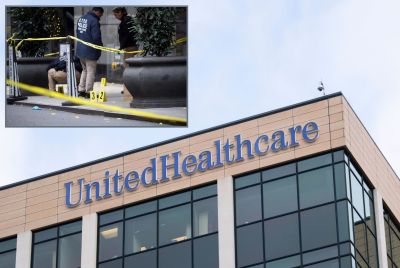AMR bolsters cash position; shares soar
Shares of American Airlines parent AMR Corp soared as much as 25 percent on Thursday after the company said it had raised $2.9 billion in troubled credit markets and would shift flying to more profitable routes.
The shares were up $1.48, or 20 percent, at $8.83 in afternoon trading on the New York Stock Exchange as investors noted the improving cash position and the No. 2 U.S. airline's improved outlook for growth.
In a letter to employees, AMR Chief Executive Gerard Arpey said the company's ability to raise money in troubled capital markets is a vote of confidence from lenders, but he expressed caution as the company attempts to find its way out of an economic downturn.
It certainly has been important to investors that we have a track record of paying people back when we borrow money from them, Arpey said. But the fact is, we cannot borrow our way to prosperity.
We have to keep working toward sustained profitability because in the end, that alone will ensure our long term future, he said. Moreover, the bar we must get over just got higher, since the additional debt we have taken on will mean higher interest expenses going forward.
The $2.9 billion, which includes cash and financing, will help AMR meet some of its debt commitments. The capacity shift to U.S. hubs may reflect the beginnings of demand stabilization after weakness this year amid economic recession.
SHARES RALLY
The gain in the shares outpaced the Amex airline index <.XAL>, which was up 2.44 percent amid signs that travel demand, especially demand for premium services, may be picking up. The airline index is up 26 percent so far in September, making it the best month since July 2008, when the index rose 31 percent.
AMR shares rose largely due to the increased cash position, said Basili Alukos, an airline analyst at Morningstar.
While they were one of the stronger airlines from a cash position, they do have looming debt commitments coming up, he said. He noted, in particular, AMR's obligation to fund its employee pensions -- an obligation many airlines do not have.
I'm always surprised to see that institutions continue loaning airlines money, Alukos said.
The $2.9 billion includes $1 billion from the advance sale of frequent flyer miles to Citigroup Inc and $280 million cash under a loan accord from GE Capital Aviation Services , secured by owned planes.
AMR also got $1.6 billion in sale-leaseback financing commitments from GE for Boeing Co planes it had previously ordered.
On Wednesday, United Airlines parent UAL Corp said it has liquidity initiatives planned for this year. Alukos said he expects US Airways Group to pursue a similar course.
Also on Thursday, AMR said its American Eagle regional partner has signed a letter of intent with Bombardier Inc to exercise options to buy 22 additional aircraft for delivery beginning in mid-2010.
CAPACITY SHIFTS TO HUBS
AMR said it would reallocate service to its hubs in Dallas/Fort Worth, Chicago, Miami and New York. The bulk of the shift will impact Chicago, where AMR said it would add 57 daily flights at O'Hare International Airport to the summer 2010 schedule from winter 2009/2010.
St. Louis will suffer the deepest service cuts, with 46 daily departures being eliminated.
U.S. airlines have been downsizing since last year, struggling to match supply with falling demand. AMR has trimmed its consolidated capacity -- which includes that of regional partners -- 11 percent for the 2009 schedule compared with 2007.
But as signs of stability in travel demand return, AMR sees a slight increase in its consolidated capacity next year.
With fairly significant capacity reductions over the last two years, we are now looking at a 2010 vs 2009 capacity increase of about 1 percent, said Virasb Vahidi, AMR's senior vice president of planning.
He said the bulk of that increase reflects a 2.5 percent jump in international capacity as AMR begins service from Chicago to Beijing.
(Reporting by Kyle Peterson and Karen Jacobs; Editing by Phil Berlowitz)
© Copyright Thomson Reuters 2024. All rights reserved.





















